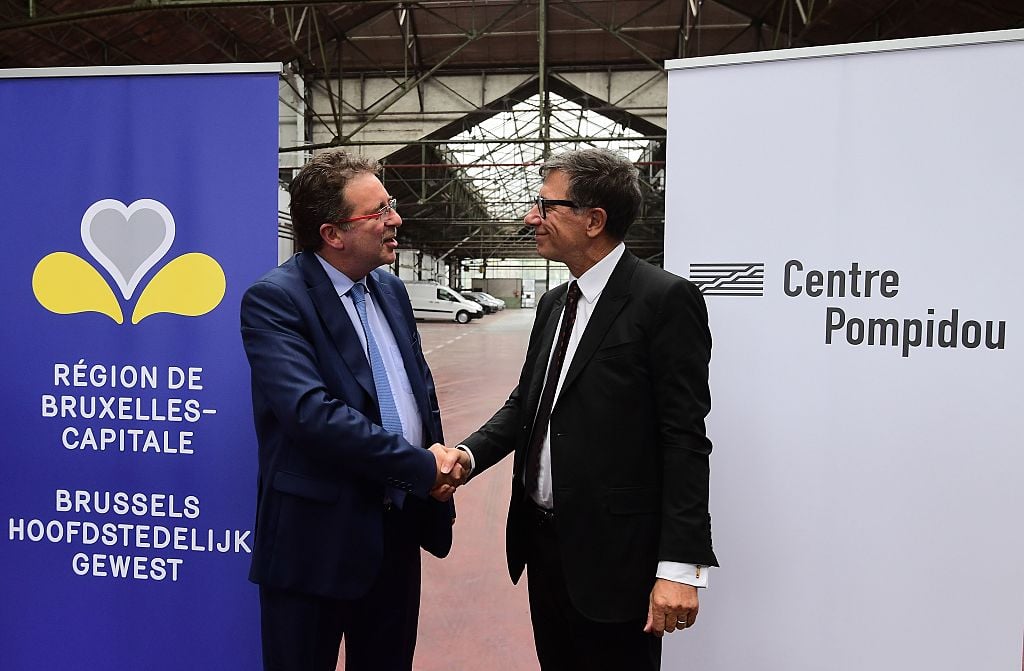
Brussels is set to get its own Centre Pompidou. The partnership was announced yesterday at a press conference held in the European capital, by the Pompidou director, Serge Lasvignes, and the Minister-President of the Brussels region, Rudi Vervoort.
The satellite will be homed at a former Citroën garage, a 16,000 square-meter Art Nouveau building located on the banks of the city’s canal, northwest of the center, AFP reports.
The former Citroen garage that will turned into a museum for modern and contemporary art in Brussels. Photo Emmanuel Dunand/AFP/Getty Images.
The project is the long-held dream of the regional government of Brussels, which bought the building back in 2015 for €20.5 million ($23.0 million) with the idea of using it to host a first-class museum which could trigger a Guggenheim effect in the city.
In the end, it’s the Centre Pompidou—which has a growing portfolio of outposts, including satellites in Metz, France, and Málaga, Spain—that has secured the deal.
According to a joint press release quoted by the Art Newspaper, the new museum (which doesn’t have an official name yet) could bring between €2.4 million to €4.8 million per year to Brussels, based on predictions of visitor figures, ranging from 500,000 to 1 million annually.
Although the museum is not slated to open until 2020, temporary exhibitions could start to be staged as early as 2018.
The Centre Pompidou will loan works from its 120,000-strong collection (the largest of modern and contemporary art in Europe, according to TAN) to its Brussels outpost, as well as advising on its acquisition strategy and collaborating on programming.